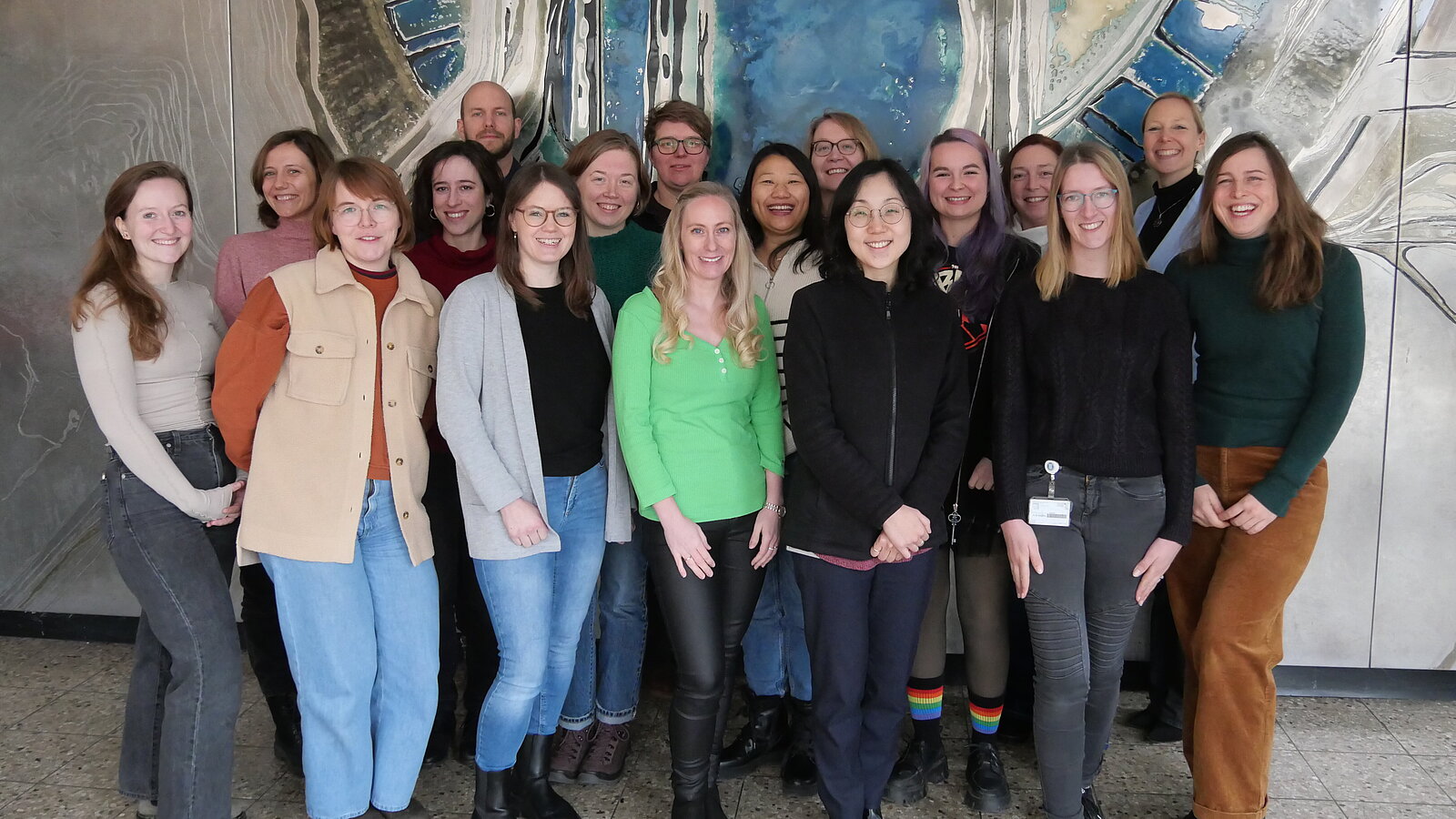About
Research Interest
Research Group Molecular and Clinical Infection Biology
The research group "Molecular and Clinical Infection Biology" aims to understand the underlying biochemical principles of an infection of host cells by viruses. The main focus of our studies is the investigation of viral entry and replication in host cells. We investigate protein interactions during virus life cycle by using high-resolution quantitative protein analysis. In recent years, we have characterized protein interactions during infection with chronic hepatitis C virus (HCV) and emerging insect-borne viruses. These studies have also been extended to the new SARS-CoV-2. In the long term, the knowledge about host factors can be used for to develop anti-infectives and can help understand tissue and host tropism of viruses.
The new emergence viruses represents a global challenge that is being accelerated by anthropogenic changes to ecosystems. Virus-transmitting mosquito species were able to spread to Europe as a result of climate change, for instance. Using mosquito-borne viruses, such as the chikungunya virus, and emerging viruses, such as SARS-CoV-2, we focus on protein networks involved in viral infection. For this purpose, we are using proteomics techniques. Our work aims to identify similarities and differences in host factor usage of zoonotic viruses, i.e. viruses that are transmitted between animals and humans. This will open new avenues for the development of antiviral drugs and the understanding of host and tissue tropism, which will ultimately contribute to risk assessment of transmission routes, disease progression and the pandemic potential of viruses.
Project Leader
Gisa Gerold studied biochemistry at the Eberhard Karls University of Tübingen, where she received her diploma in biochemistry (minors in physical chemistry and microbiology) in 2003. In 2008, she received her Ph.D. in biology and biochemistry from Humboldt University Berlin, conducting her research at the Max Planck Institute for Infection Biology under the supervision of Professor Arturo Zychlinsky. Her doctoral thesis focused on the innate immune response to bacteria. This work was awarded the Otto Hahn Medal of the Max Planck Society.
During her three years of postdoctoral research at the "Center of Hepatitis C" at the Rockefeller University, New York, USA under the direction of Professor Charles M. Rice, she worked on various aspects of hepatitis C virus (HCV) infection, including host tropism and HCV-related viruses in animals. From 2012 to 2017, she worked at Twincore, a joint facility of Hannover Medical School and the Helmholtz Centre for Infection Research. There, she investigated mechanisms of HCV entry into hepatocytes using a combination of mass spectrometric proteomic analysis and virological methods. For her postdoctoral work, she solicited independent grants from the National Academy of Sciences Leopoldina, the Human Frontiers Science Program (HFSP), and the German Research Foundation (DFG). In 2017, the work was awarded the Robert Koch Prize for Postdoctoral Researchers in Virology.
From 2017 to 2020, she led the Viral Proteomics research group at Twincore's Institute of Experimental Virology and has held a visiting professorship at Umeå University in Sweden since 2018. The work at the Swedish Wallenberg Center for Molecular Medicine (WCMM) is funded by the Knut and Alice Wallenberg Foundation and the Kempe Foundation. Her German-Swedish team is studying the entry of human pathogenic viruses such as HCV, noroviruses and chikungunya virus into the host cell as well as the innate immunity of the host cell to viral infection. Using novel technologies including label-free protein quantification, her team aims to elucidate fundamental principles of virus entry and virus recognition.
Since 2019, Gisa Gerold has been a board member of the Center for Infection Biology (ZIB) and since 2020 an associate member of the RESIST Cluster of Excellence at Hannover Medical School. From 2017 to 2018, Gisa Gerold co-chaired the annual "Cell Biology of Viral Infections" workshop of the German Society of Virology (GfV) with Dr. Pierre-Yves Lozach (University of Lyon), where she was elected as a member of the advisory board in 2020 and to the board of Directors in 2023. In 2021, she established the new GfV working group "One Health and Zoonotic Viruses", which she co-chairs with Dr. Yvonne Börgeling from the University of Münster.
In 2020, Gisa Gerold was appointed Professor of Biochemistry - Focus Molecular and Clinical Infectiology - at the Foundation of the University of Veterinary Medicine Hannover. There, as a member of the Institute of Biochemistry at the "Research Center for Emerging Infections and Zoonoses" (RIZ), her team conducts research on viruses that are transmitted from animals to humans and cause diseases in humans and animals. The focus is on mosquito-borne viruses of the alphavirus genus, on arenaviruses causing hemorrhagic fever, and on gastrointestinal viruses such as noroviruses. Methodologically, Gisa Gerold's team uses state-of-the-art proteomics approaches to discover new host factors of potentially epidemic-causing viruses and thus to understand which hosts are infected by the viruses and how the viruses trigger disease in specific tissues of humans and animals.
A biochemist and virologist, she has been director of the Institute of Biochemistry since 2022. In 2023, she was appointed deputy spokesperson of the VIPER Research Training Group.
The German work is funded by the German Research Foundation (DFG), the Ministry of Science and Culture of Lower Saxony (MWK), the Federal Ministry of Education and Research (BMBF) and the German Academic Exchange Service (DAAD).
The Swedish work is made possible by the Knut and Alice Wallenberg Foundation, the Kempe Foundation and the Erling-Persson Foundation.

The Gerold Lab is committed to UN sustainable development goals 3 (good health and well-being), 4 (quality education), 5 (gender equality), 9 (industry, innovation, and infrastructure), and 17 (partnership for goals).
copyright is attributed to the UN Sustainable Development Goals




